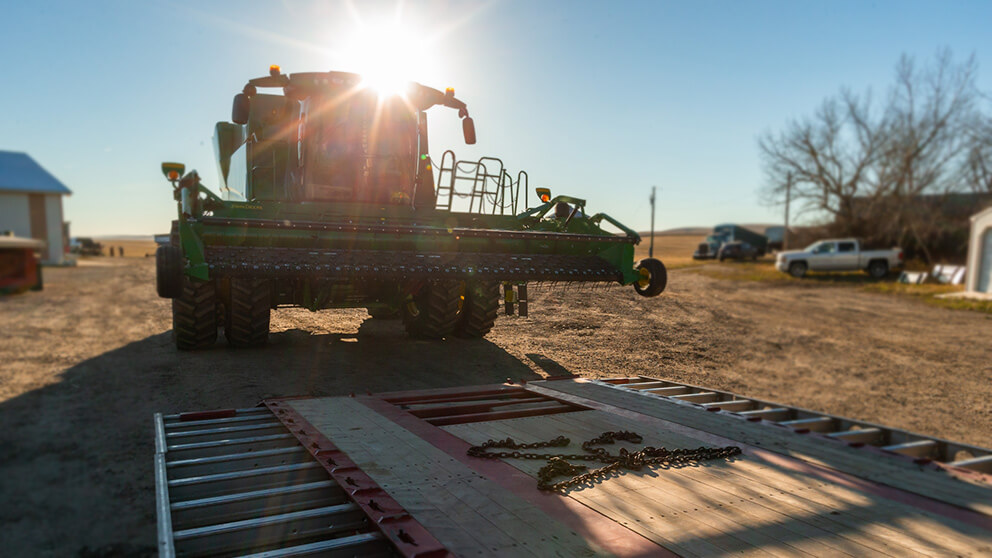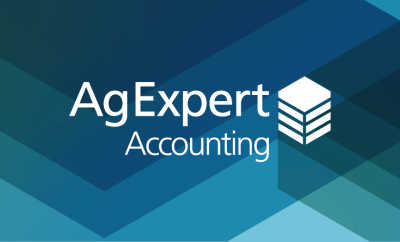Optimizing and sharing digitally derived solutions

Digital solutions continue to drive decision-making in our world. Those who share their data with trusted third parties may see tremendous benefit for their farm’s future.

Financial advisor and portfolio manager at Raymond James Kelowna, B.C.
Financial data
Farmers are arguably my busiest customers. They’re occupied quite literally around the clock managing their operations and finding time to provide the data needed for comprehensive financial planning has about as much allure as an appendectomy. I get it. The adage “short-term pain for long-term gain” could not be more apt than in farm finance.
When deciding who to let into their data circle, farm owners must consider who will take over the business. Gone are the days when it would automatically pass to the oldest son. Instead, many find their children have other aspirations, and they may need to look outside the family to find potential successors and integrate them as early as possible.
Succession planning tends to be quite complex, involving such factors as multifaceted estate issues, tax considerations, risk management and overall farm business transition. Determining a strategy means understanding the farm business as it is currently and as it is forecast to be at retirement.
A substantial amount of detail must be shared to set up current and future generations for success, often with the help of an advisor to liaise with the farm’s team of professionals. The more details that can be shared, the more in-depth and customized the resulting plans will be.

President and CEO at Painchaud Performance Group Winnipeg, Man.
Human performance data
One critical piece of data that is late to the farm party is that of human performance, or HR. What this information may tell is often the difference between a healthy, thriving operation and a negative, unmotivated workplace.
When farm operators recruit, they often do so with a brief social media post. Worse yet, they may find themselves in a pinch and their only criteria becomes two feet and a heartbeat. The cost of a bad hire is more than just lost money, though. Morale quickly deteriorates if issues are not dealt with and other employees may become disengaged. With a few proactive steps, managers can build a team of high-performing, engaged employees that positively impacts the bottom line.
Psychometric testing is crucial for hiring managers as it helps you better understand a candidate’s potential strengths, understand how they thrive and know what they need to succeed. It’s one way to avoid hiring a likeable person while passing up more qualified applicants who may better fit into your operation’s culture. As farms increase annual audits of workplace culture and employee engagement, the resulting data is a key driver to improving the overall business.
Understanding the environment an applicant will flourish in can make a world of difference. A grab-the-bull-by-the-horns employee, for example, will always need a bull to grab. Similarly, a worker-bee needs a to-do list with no end in sight.
Remember, feedback is equally vital for managers and employees. Performance reviews are data, and critically important to growing and keeping high-calibre employees.

CEO of Global Ag Risk Solutions Regina, Sask.
Agronomic data
Farming is high stakes – you get one chance to grow your crop. The model in Canada for more than 100 years has largely been to rely on intuition with some fine-tuning based on last year’s results.
Now, with agronomic data collection and aggregation, an area farmer could share information through a third party, along with 100 nearby producers, and get access to 100 years’ worth of relevant benchmark data. If everyone shares for 10 years, there is suddenly 1,000 years of learning to draw on.
Producers may view digital data as insecure or believe it may be used against them. It’s a legitimate concern. It’s much more likely, though, that the end result will be industry using your data in aggregate to generate new ideas and products based on your soil zone, geography, climate, macro- and micro-nutrient needs, and more. If agriculture is going to progress, data sharing will be required. There’s no way around it. Whether it’s finance, insurance, agronomy or carbon credits, sharing some amount of data is nearing the non-negotiable stage. The payback is that once shared, the farm gets access to a new opportunity or areas to improve.
Having a coffee with a neighbour and telling them what you did this year is essentially a slower version of uploading your data to the cloud. You’ve been sharing data your whole life; technologies of today can help interpret data to potentially give you a greater payback at the farm gate. Farmers who embrace the digitality of agriculture can already attest to its many benefits.
From an AgriSuccess article by Trevor Bacque.

Before you make an expensive equipment investment, weigh your options to buy or lease carefully.
